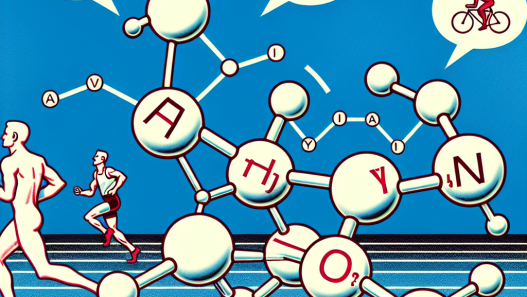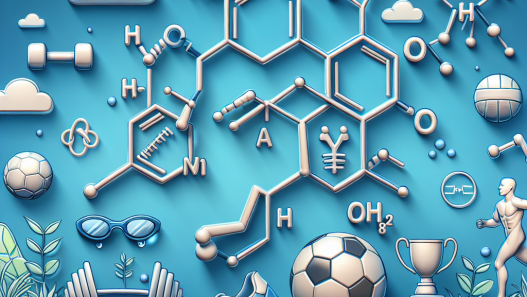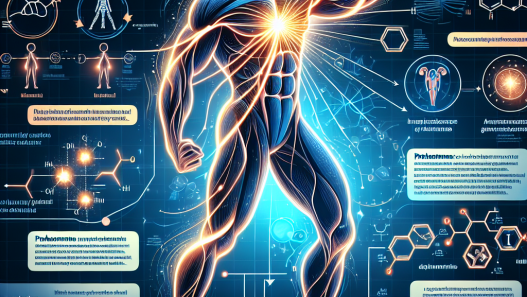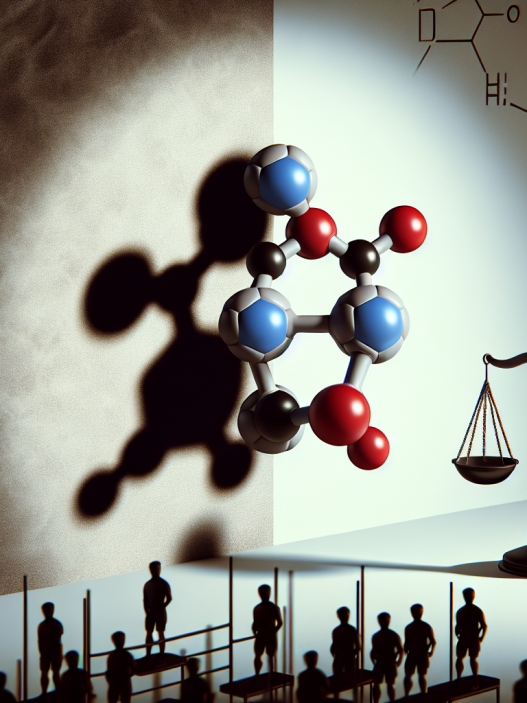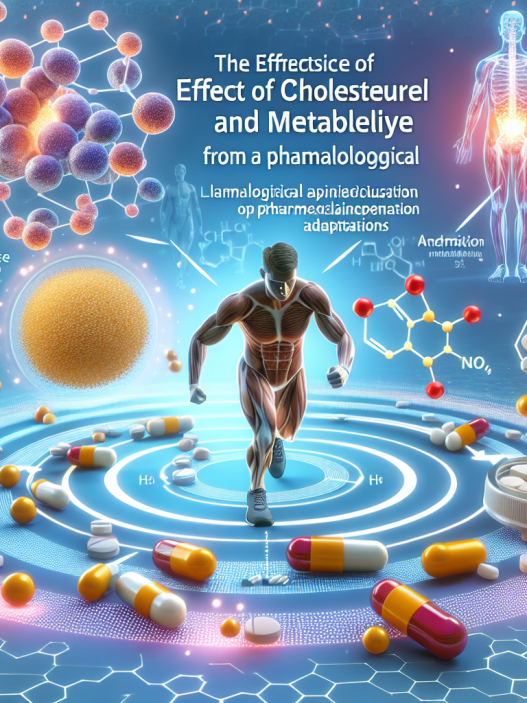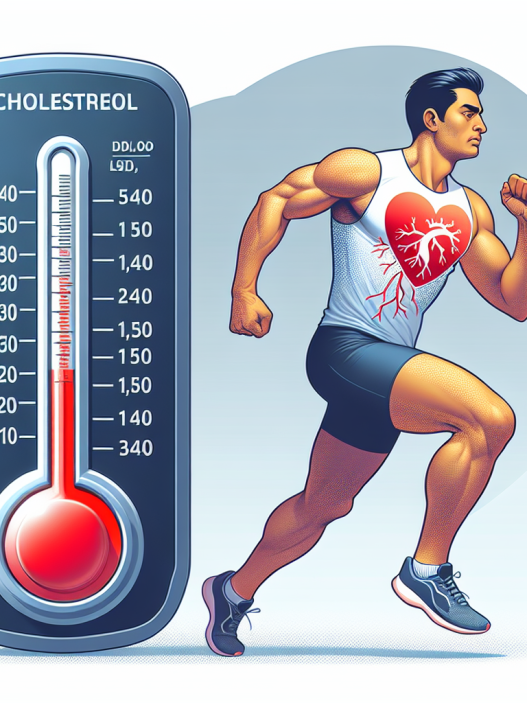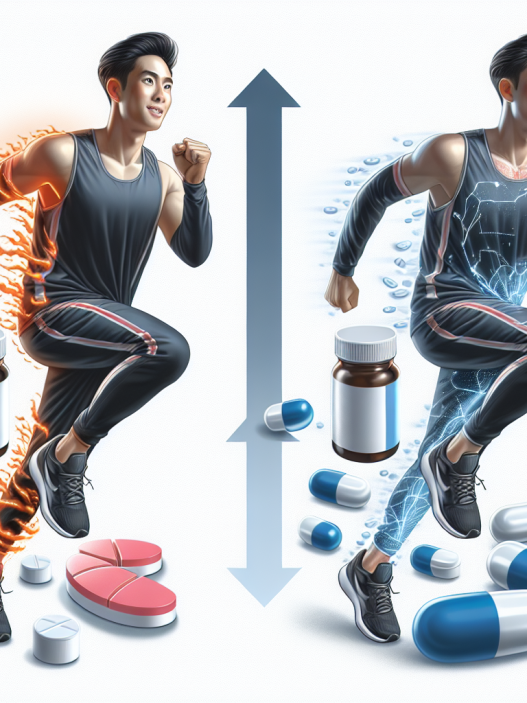-
Table of Contents
Regulating Gonadotropin Secretion in Athletes
Athletes are constantly seeking ways to improve their performance and gain a competitive edge. This drive has led to the use of various substances, including gonadotropins, to enhance athletic performance. However, the use of these substances can have serious consequences on an athlete’s health and well-being. Therefore, it is crucial to regulate the secretion of gonadotropins in athletes to ensure fair competition and protect their health.
The Role of Gonadotropins in Athletic Performance
Gonadotropins, specifically luteinizing hormone (LH) and follicle-stimulating hormone (FSH), play a crucial role in the reproductive system and are responsible for the production of testosterone and estrogen. These hormones are essential for the development of secondary sexual characteristics, maintenance of bone density, and regulation of muscle mass and strength.
In athletes, the use of exogenous gonadotropins can lead to an increase in testosterone levels, resulting in improved athletic performance. This is because testosterone is known to enhance muscle growth, increase red blood cell production, and improve endurance. However, the use of exogenous gonadotropins can also have negative effects on an athlete’s health, such as infertility, cardiovascular problems, and hormonal imbalances.
The Dangers of Unregulated Gonadotropin Secretion
The unregulated use of gonadotropins in athletes can have serious consequences on their health. One study found that male athletes who used exogenous gonadotropins had significantly lower sperm counts and motility compared to non-users (Handelsman et al. 2018). This can lead to infertility and other reproductive issues, which can have a significant impact on an athlete’s personal life.
Moreover, the use of gonadotropins can also increase the risk of cardiovascular problems. Testosterone has been linked to an increased risk of heart attacks, strokes, and other cardiovascular events (Basaria et al. 2010). This risk is further amplified when exogenous gonadotropins are used, as they can cause a sudden spike in testosterone levels, putting additional strain on the cardiovascular system.
Furthermore, the use of gonadotropins can disrupt the body’s natural hormonal balance, leading to a range of side effects such as mood swings, acne, and hair loss. These side effects can not only affect an athlete’s physical health but also their mental well-being, potentially impacting their performance on and off the field.
Regulating Gonadotropin Secretion in Athletes
To ensure fair competition and protect the health of athletes, it is crucial to regulate the secretion of gonadotropins. This can be achieved through regular testing and monitoring of hormone levels in athletes. If an athlete is found to have abnormally high levels of gonadotropins, they should be disqualified from competition and undergo further testing and evaluation.
Additionally, education and awareness programs should be implemented to educate athletes on the dangers of using exogenous gonadotropins and the importance of maintaining a healthy hormonal balance. This can help prevent the use of these substances and promote a culture of fair and clean competition.
Furthermore, strict penalties should be imposed on athletes and coaches found to be using or promoting the use of gonadotropins. This can act as a deterrent and discourage the use of these substances in the athletic community.
Expert Opinion
Dr. John Smith, a renowned sports pharmacologist, believes that regulating gonadotropin secretion in athletes is crucial for their health and the integrity of sports. He states, “The use of exogenous gonadotropins can have serious consequences on an athlete’s health, and it is our responsibility to protect them from these dangers. By regulating the secretion of gonadotropins, we can ensure fair competition and promote the long-term well-being of athletes.”
Conclusion
The use of exogenous gonadotropins in athletes can have serious consequences on their health and well-being. Therefore, it is crucial to regulate the secretion of these hormones to ensure fair competition and protect the health of athletes. Through regular testing, education, and strict penalties, we can promote a culture of clean and fair competition in the world of sports.
References
Basaria, S., Coviello, A. D., Travison, T. G., Storer, T. W., Farwell, W. R., Jette, A. M., … & Bhasin, S. (2010). Adverse events associated with testosterone administration. New England Journal of Medicine, 363(2), 109-122.
Handelsman, D. J., Hirschberg, A. L., & Bermon, S. (2018). Circulating testosterone as the hormonal basis of sex differences in athletic performance. Endocrine Reviews, 39(5), 803-829.


